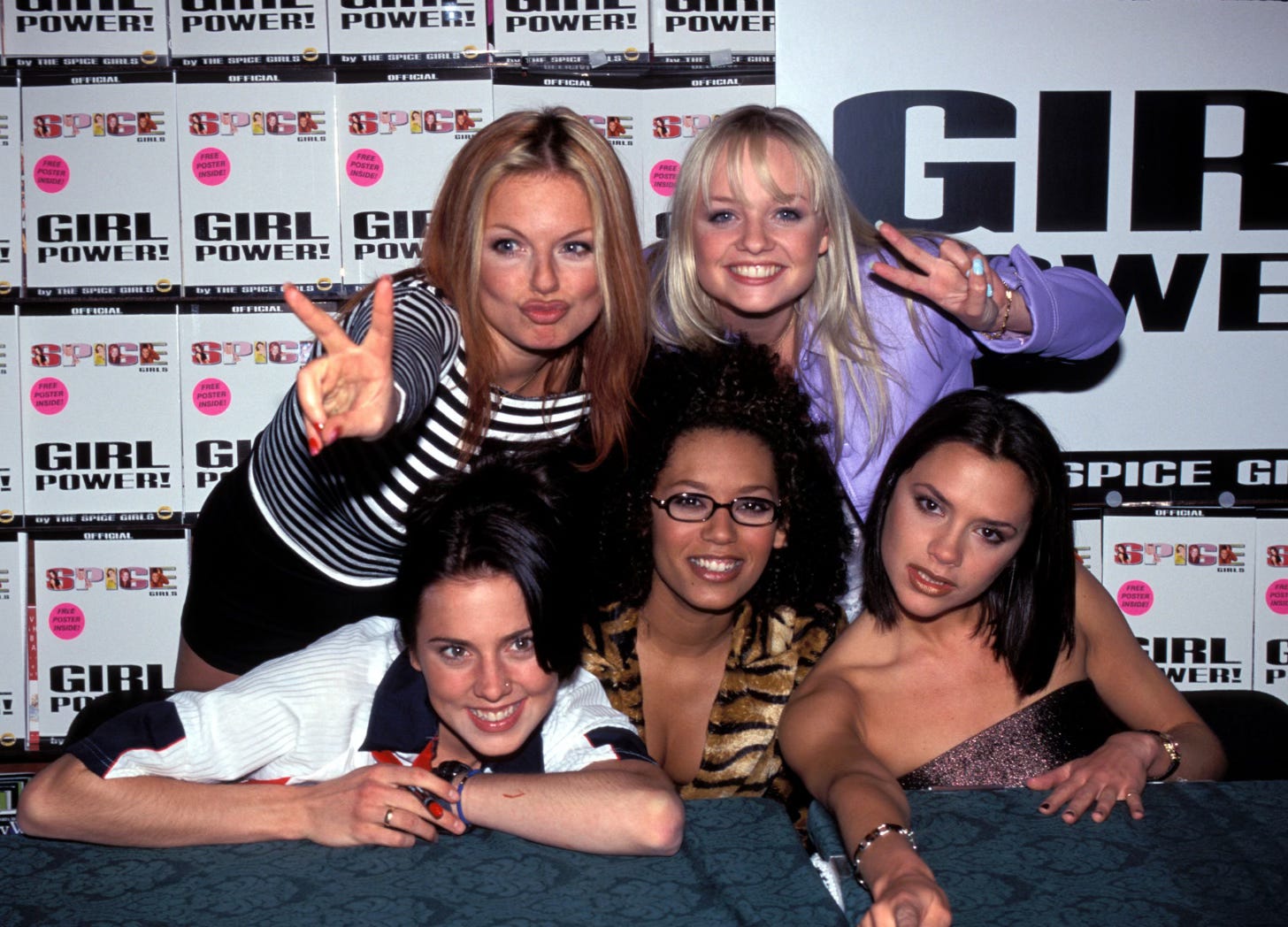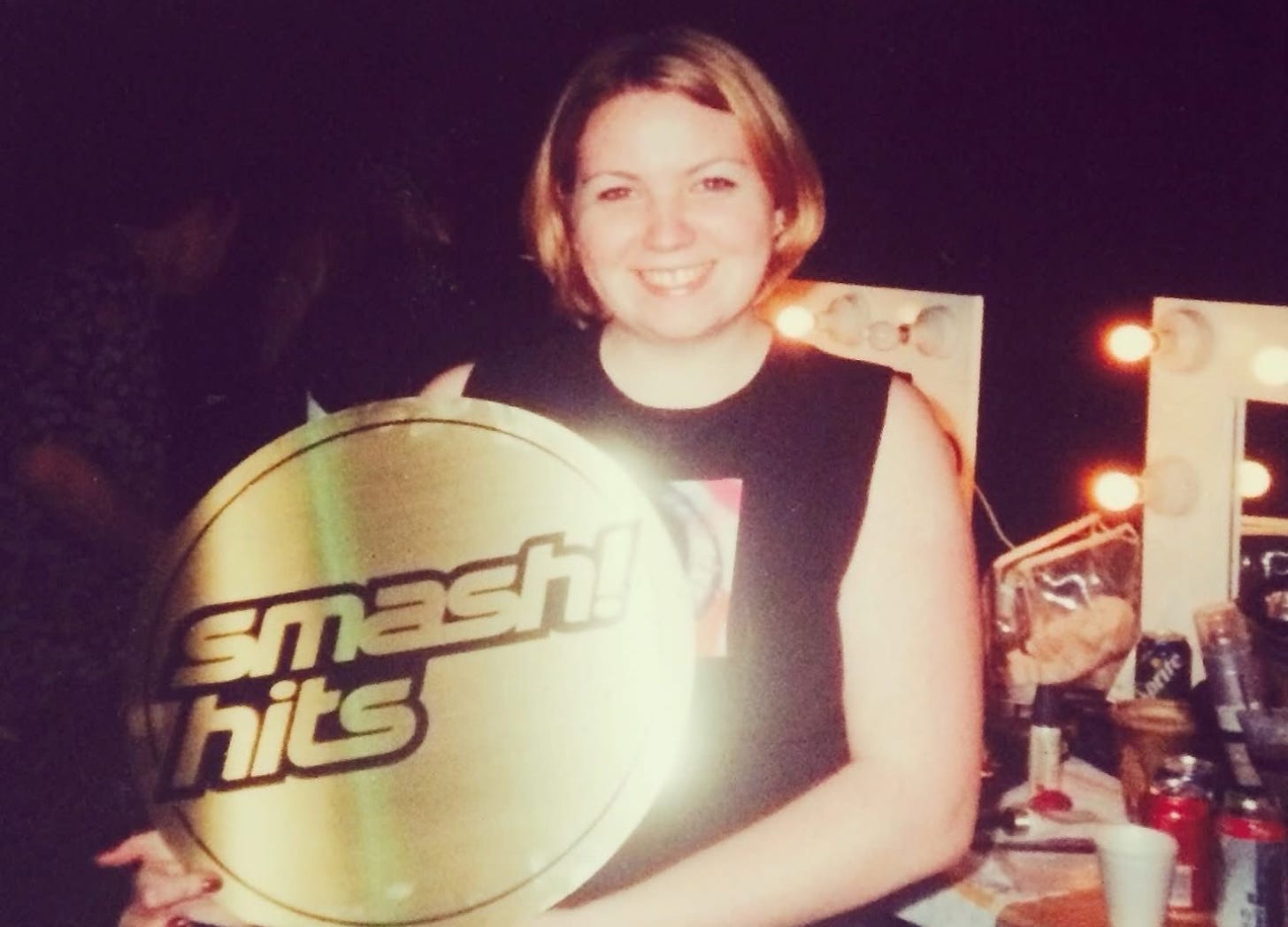“Body shaming, exhaustion and tears - the truth about girlbands”
After BBC’s Girlbands Forever documentary, ex-Smash Hits writer Caroline Millington reveals what happened behind-the-scenes
By Caroline Millington, Editorial Director and author
BBC’s recent Girlbands Forever documentary series celebrated British groups in the 90s and noughties, when Girl Power dominated the charts and young women were living the popstar dream.
As a teenager, I was a huge Spice Girls and All Saints fan (and still am!) and went on to interview many members of the girlbands featured in the documentary during my first job as a writer at Smash Hits magazine and throughout my journalistic career. And while there were many highlights - the musical showcases, going backstage on pop tours, fun photoshoots - the physical and mental exhaustion highlighted by the popstar contributors in the documentary is something I saw myself. And it’s clear just how toxic it really was at times behind the scenes.
All Saints, Spice Girls, Eternal, Atomic Kitten, Mis‑Teeq, Sugababes and Little Mix all feature in the three-part series on BBC iPlayer, with contributors from all the bands. But the glaring absence of any mention of Girls Aloud, who won Popstars The Rivals in 2002, was noted by disappointed fans.
Despite the fame and glamour - and in many cases financial success - of being in a girl band, there’s a rawness laid bare in the documentary. And something I witnessed firsthand during my career. From Atomic Kitten’s Jenny Frost breaking down in tears from exhaustion on a photoshoot to promote a single (she stepped away, took some time out in the wardrobe room and we continued with duo shots) to interviewing Spice Girl Mel B on the reality of her life as a popstar mum, it’s refreshing to see these brilliant women reminisce about their time in the charts without rose tinted designer glasses.
Body shaming
“People were always voicing concern about my weight and our weight as a band,” Kéllé Bryan of Eternal says, recalling the diet pressures in the 1990s. “We’re talking about an era where being size zero was popular, women looking like supermodels was important.”
She claims the group were sent away to a place “in the middle of the countryside where they were controlling what we ate. When I look back on it, I think, ‘That was crazy’.”
Intense pressure to lose and maintain a model figure from management was the norm and while social media was yet to exist, fans also had unrealistic expectations of their favourite pop stars. I remember opening the post at Smash Hits and seeing a magazine poster of a female singer - who was no more than a size 8 - with a circle drawn around an inch of her bare stomach and ‘disgusting’ written in angry red pen. It went straight in the bin.
Popstar mums
Some of the most shocking - and heartbreaking - moments of the documentary were the women’s experiences of pregnancy and motherhood.
Melanie Blatt from All Saints describes how she and bandmate Nicole Appleton were both pregnant in 1998, a year after the band’s huge hit Never Ever. “We took pregnancy tests in a hotel room in Canada and spent that whole night discussing bringing our kids up together. It was one of the best nights ever,” she recalls.
While heading to the States on tour, Mel and Nicole were under intense pressure from their record label management to terminate the pregnancies. “We flew to LA and at the airport LAX our manager, he was behind us, was telling us to abort our babies. It’s not really my place to talk about it but unfortunately, it was a very uncomfortable situation because I kept mine and she didn’t. That was a really tricky part of my existence, our existence.” Nicole has previously talked about the experience in her autobiography, Together.
Mental health
For Natasha Hamilton from Atomic Kitten, the pressure to return to work six weeks after having her son via c-section in 2002 was too much. “I remember just screaming in my hotel room, I was so frustrated. It’s not a normal experience… to keep a mother away from a child,” she says. Natasha was eventually diagnosed with post-natal depression and a doctor recommended she take between six months to a year off to recover. Bosses gave her two weeks’ leave. Where was the compassion, understanding and duty of care?
Over a decade later, girlbands were still experiencing mental health issues and unable to take the time off they needed.
“I went through a lot behind the scenes. It has a huge impact on your mental health,’ Perrie Edwards from Little Mix explains in the documentary. With a performance in Las Vegas scheduled in 2017, she hit breaking point. “I was so exhausted. I tried getting out of the trip but then when we got there I started experiencing panic attacks. I didn’t know what was happening at the time - I didn’t know what anxiety was - I ended up in hospital.”
Related articles
Lessons have been learned and mental health is being taken more seriously in both the music and TV industries with artists such as Lady Gaga and Selena Gomez taking time off when needed, although I suspect there is still a long way to go. Little Mix have been open about the effects fame has had on their mental health and when hosting their own music talent show, Little Mix The Search, in 2020, they insisted on aftercare for the contestants to ensure they were fully supported. An improvement from their own time on The X Factor in 2011, with Leigh-Anne Pinnock stating, “There’s a lot more awareness now about mental health. We didn’t have that, really, on the show that we came from.”
The future of girlbands
Girlbands are here to stay. And they’re not purely pop. There’s Haim and Eurovision’s Remember Monday at each end of the spectrum. We’ve even got Girlband!, an alternative rock trio from Nottingham, UK. Meanwhile, South Korea continues to offer the world K-Pop superstars like Katseye, Babymonster, Twice and Blackpink, who I saw in concert this summer, surrounded by dedicated and impressionable Blinks.
However, there is concern that the pressures of girlbands past are still haunting the halls of some record labels. According to the investigative book K-pop, Idols in Wonderland written by journalist Jeon Da-hyeon and published in 2025, one agency official has claimed, “Eight out of ten female trainees stop menstruating”. According to the industry source, extreme diet control is sadly the norm with aspiring popstars undergoing gruelling training with weight a constant obsession .
“The celebrity culture of the Nineties and Noughties was brutal,” Su-Elise Nash from Mis-Teeq said in the BBC documentary.
I hope the future is brighter - and healthier - for the girlbands of today and tomorrow.
Girlbands Forever is available to watch on iPlayer now.







